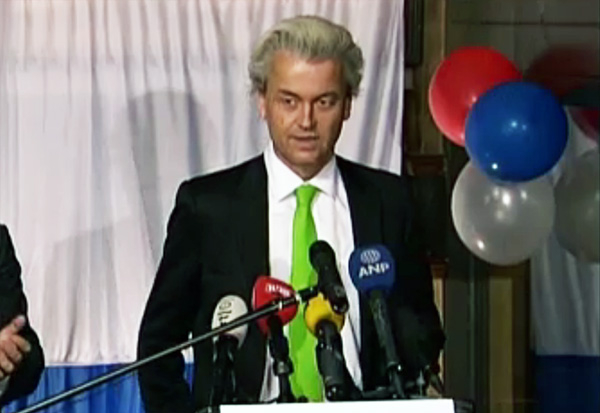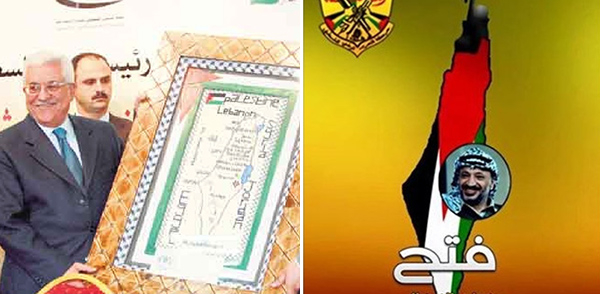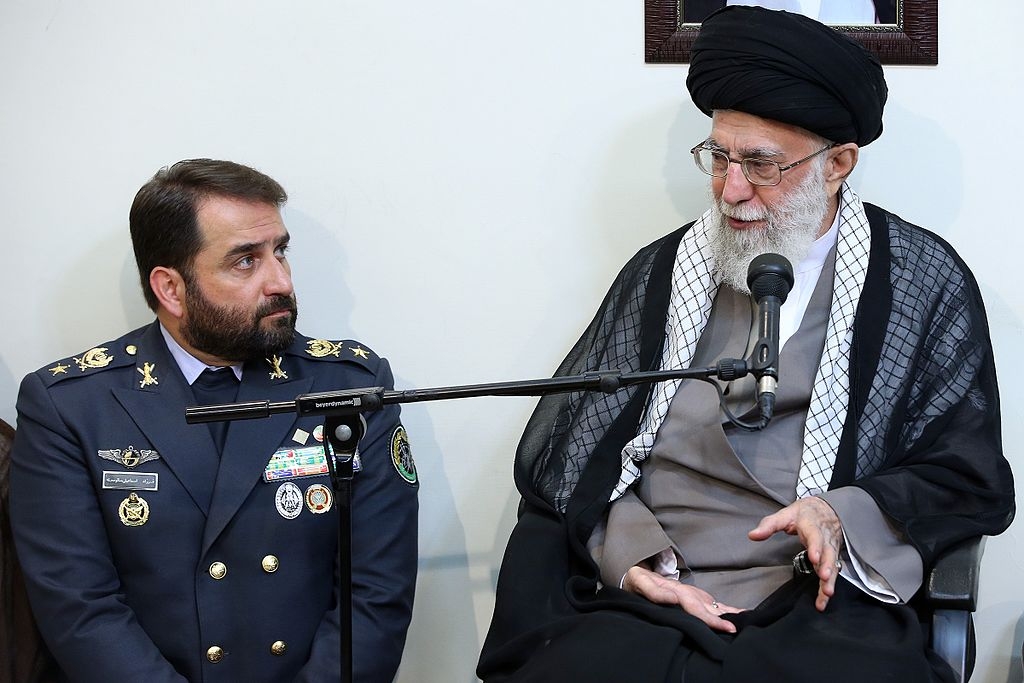A revelation of Palestinian diplomatic tactics came to light recently in the form of a diplomatic response to an article that opposed the formal acceptance of a Palestinian state, at least at this time.
In an important article last July, titled “The Case against Recognition of Palestine,” the Director of the British Israel Communications and Research Centre, Professor Alan Johnson, argued that the Australian Labour Party’s proposal to recognize the so-called State of Palestine would be a grave error that would harm the ALP itself. Johnson made a reasoned and informed plea for ALP members to reject the motion, reminding the public that Israel has always been open-handed in its offers of peace, unlike the Palestinians, who have consistently refused to accept even the most generous proposals. It is important to note that Johnson, an authoritative writer and speaker, with a longstanding reputation as a political theorist, is a moderate left-winger and British Labour Party member, a former Trotskyite. In other words, he would seem to be the last person to argue Israel’s case and oppose Palestinian statehood.
Rather than respond to Johnson’s scholarly arguments by issuing a serious piece by a pro-Palestinian academic of similar stature, the journal published just one week later a diatribe by a Palestinian diplomat named Ali Kazak, titled “Justice, not Deceit, will achieve Peace.”
Kazak is probably the leading Palestinian lobbyist in Australia, (where he moved in 1970, after being raised in Syria). He set up the Palestine Information Office (later the General Palestinian Delegation), recognized by the Australian government, and has gone on to obtain recognition in New Zealand. He is treated as the Palestinian ambassador in several Pacific states such as Vanuatu. He writes copiously for the Australian press in English and Arabic, and for Arabic-language papers across the globe.
Kazak may be little known outside his region, but his response to Alan Johnson is not a presentation of one man’s opinions; it is an official document that one may take as a formal statement of Palestinian views. As such, it merits close analysis.
In over forty years as an academic and writer on Islam and the Middle East, there has rarely come to my attention a more misguided, distorted, exaggerated, and factually incorrect article than Ali Kazak’s. It is so filled with deliberate distortions that it might take several articles to show all of them for the ahistorical garbage and brazen polemic they are.
It is hard to know where to start. In his first page, Kazak uses a straw man argument to tar all Zionists as unashamed colonizers who demand a Greater Israel far beyond the modern boundaries of the state of Israel: “The aims of Zionism since its creation in 1897… was (sic) never for coexistence, nor was it to establish a Jewish state on part of Palestine. Instead, the aim of Zionism been to colonize all of Palestine and parts of the neighbouring Arab states, and ethnically cleanse the Palestinian people.”
Kazak quotes at length passages from a letter — written on October 5, 1937 by David Ben-Gurion to his son, Amos — which contains such gems as “We must expel Arabs and take their place… I am confident that the establishment of a Jewish state, even if it is only a part of the country, will enable us to carry out this task.” This quotation has been taken from an erroneous transcription of the letter and uses a bad English translation from that. Fortunately, the handwritten original still exists and has been compared with the transcription. Ben-Gurion never wrote “We must expel Arabs and take their place.” This is nowhere in the letter. What Ben-Gurion wrote was, in fact, the exact opposite:
“We do not want to and we do not have to expel Arabs and take their place.”
The letter continues in similar vein:
“All of our ambitions are built on the assumption that has proven true throughout all of our activities in the land [of Israel] — that there is enough room for us and for the Arabs in the land [of Israel]. And if we will have to use force, not for the sake of evicting the Arabs of the Negev or Transjordan, but rather in order to secure the right that belongs to us to settle there, force will be available to us.”
Here are some further passages:
“The greater the Jewish strength in the country, the more it will be possible for the Arabs to benefit enormously from the Jews, not only materially but politically as well. … the Arabs will realize that it is better for them to become our allies … They will derive benefits from our assistance if they, of their own free will, give us the opportunity to settle in all parts of the country. … the Jews could be equal allies, real friends, not occupiers or tyrants over them…. It is very probable that they will agree that we undertake the development of the Negev and make it prosper in return for our financial, military, organizational, and scientific assistance.”
As far back as 1906, the young Ben Gurion wrote that “The Jewish settlement is not designed to undermine the position of the Arab community; on the contrary, it will salvage it from its economic misery, lift it from its social decline, and rescue it from physical and moral degeneration. Our renaissance in Palestine will come through the country’s regeneration, that is: the renaissance of its Arab inhabitants.”[1]
Throughout his life, Ben Gurion made many such comments, constantly pleading with the Arabs to live and work alongside the Jews to create a flourishing state. Why does Kazak mention none of these, but substitutes a falsified, mistranslated, and deceitful quotation to “prove” that the Jews were intent from the beginning on expelling the Arabs?
Written while a civil war launched by the Arabs still raged, and as five Arab nations prepared to invade the new state, Israel’s Declaration of Independence reads in part:
WE APPEAL – in the very midst of the onslaught launched against us now for months – to the Arab inhabitants of the State of Israel to preserve peace and participate in the upbuilding of the State on the basis of full and equal citizenship and due representation in all its provisional and permanent institutions.
WE EXTEND our hand to all neighbouring states and their peoples in an offer of peace and good neighbourliness, and appeal to them to establish bonds of cooperation and mutual help with the sovereign Jewish people settled in its own land. The State of Israel is prepared to do its share in a common effort for the advancement of the entire Middle East.
It must have stuck in Kazak’s throat to cite this, yet further evidence that he is peddling a lie. There is more. Kazak’s view (reflecting a long-standing Palestinian myth) is that the whole Zionist enterprise was aimed at the colonization of much of the Middle East. He even manages to dredge up some statements by Theodor Herzl and other Zionists to enforce this view.
In truth, there has been and still is a tiny minority of Zionists who cling to the fantasy of a Jewish state embracing the Biblical region from eastern Egypt to northern Arabia. But to present this as evidence that Zionists as a whole hold such views is deeply misleading. When I say “a minority,” I really mean it. After 1967, a movement and political party named The Movement for Greater Israel emerged, and in 1969 it stood in a general election. It received 0.6% of the vote, below the electoral threshold of 1%, and collapsed.
Kazak weaves a fiction of malign Zionist aims to take over territories beyond the borders of Israel, when all the Jewish people as a whole ever wanted to do was have a state of their own.
By 2008, Israeli Prime Minister Ehud Olmert made the country’s position clear when speaking to his cabinet: “Greater Israel is over. There is no such thing. Anyone who talks that way is deluding themselves.” It is not hard to conclude that Ali Kazak is one of the deluded.
Kazak’s fantasy about a Greater Israel is false, yet he does not so much as breathe a word about the most popular slogan used by Palestinians and their supporters abroad: “Palestine will be free From the river to the Sea.” All Palestinian maps show this same thing: a Palestine stretching from the River Jordan to the Mediterranean. The slogan and the maps show one thing: no Israel. To call for the extinction of a people and country is a threat of genocide, something the Jews of all people have never called for and will never urge.

Palestinian Authority leaders, official television, schools and media outlets often display maps showing Palestine stretching from the River Jordan to the Mediterranean. The maps do not show the existence of Israel.
|
The notion that all Zionists and Jews want to build a Greater Israel has disturbing echoes of one of the hoariest and most frequently dismissed myths of anti-Semitism: that the Jews control everything and have taken over everything from banking to the film industry, to all the wars and revolutions, even entire governments. This was an evil conspiracy theory constructed by the Russian secret police to justify their pogroms and later promulgated by the Nazis to explain their extermination of six million human beings. It is shameful even to hint at it.
Not only that, but the claim falls flat when compared to what Israel has actually done down the years. In 1979, Israel reached a peace treaty with Egypt and, as a gesture to improve relations, it pulled out of the Sinai Peninsula entirely, tearing down every last Jewish settlement there. Today, Egyptian forces are fighting ISIS on the peninsula.
On May 24, 2000, Israel completed its withdrawal from Lebanon in accordance with UN Security Council Resolution 425, thus ending a 22-year military presence there since the First Lebanon War began in 1982. All IDF troops were pulled out of the region and all IDF and South Lebanon Army (SLA) outposts were evacuated and destroyed.
In August 2005, Israeli troops dragged Jewish settlers screaming out of their homes in Gaza and totally ended any Israeli presence there. The Jews left behind greenhouses and other advanced equipment and buildings to help advance the Gazan economy. Within days, everything had been destroyed by local Palestinians. The next year, Hamas took control and has since used Gaza as a base from which to fire thousands of rockets into Israeli towns. And some days after the Gaza pullout, Israel also closed down four settlements in the northern West Bank and expelled their Jewish inhabitants.
How does all this fit Kazak’s accusation that Israel wants to expand its borders? Are pullouts from territory won in defensive wars a sign of irrendentism?
Finally, why does Kazak not address the genuine threats of extremist Muslim sheikhs and organizations that say Islam will conquer the world, Muslims will dominate, and the earth will become a single umma [community]? These people fight actual offensive wars, destroying whole countries and massacring their inhabitants. I would have thought that a greater worry to Kazak and his people than a tiny handful of Jewish fantasists who are rejected by their own society.
But Kazak’s article goes beyond this fiction to re-write history. As a historian, I can only goggle at the effrontery of his version of events. He leaves out far more than he adds, and does so knowing perfectly well that his narrative is deceitful in the extreme and with so many howlers.
Here is one: Kazak claims that “the United Nations has no jurisdiction to partition any country against the wishes of the majority of its people.” Even if that were true, it is completely irrelevant to the case of Israel and the Palestinians. The will of the majority was meaningless and there has never been, at any time, a sovereign state of Palestine.
Since the Islamic invasions of the 7th century, the entire region has been a province of a sequence of empires from the Umayyads to the Ottomans, and it has been known as al-Sham or Syria. What became the Palestinian Mandate was originally southern Syria. But when the Ottoman Empire fell to pieces in 1918, the world powers had to do something to create new states where the provincial peoples could rule themselves, and to do this they had to create mandates. The French were given northern Syria, from which they created modern Syria and Lebanon. Britain held the mandates for Iraq and Palestine. Part of the Palestine Mandate required by law under the League of Nations was the creation of a Jewish homeland there.
But here is something Kazak does not tell us. The British divided the original mandate of 120,466 square kilometres into two distinct halves. The section to the east of the Jordan River was declared a purely Arab state known as Transjordan, which took 77% of Palestine. The remaining 23% (28,166 sq. km.) was set aside for equal Jewish and Arab settlement. When Kazak claims that “On May 14 1948 the Zionists declared the establishment of a Jewish state on 78% of Palestine and renamed it Israel” he is talking through his hat and really needs to go back to school and attend some lessons in mathematics.
In November 1947, the United Nations, which acquired the legal responsibilities for the mandates from the League of Nations, after years of trying to convince the Arabs in the 23% territory to live alongside the Jews, decided to partition the land. One slender part was given to the Jews, who accepted the space allotted to them without grumbling, but the Arabs rejected the arrangement, refused to establish a state of their own, and have gone on since then fighting, turning down generous peace offers, using terrorism on a vast scale, and doing all in their power to destroy Israel. That is why they do not have a state today.
Let us turn to the supposedly historical events Kazak lists in the rest of his screed. First, this:
“On April 1, 1948, the Jewish underground terrorist groups, the Haganah, Stern Group and Irgun, which became the Israeli army, launched a war putting Plan Dalet into force, with two objectives:
* To establish a Jewish state beyond the boundaries demarcated by the United Nations.
* To establish a state devoid, as much as possible, of its indigenous Palestinian population by expelling them, in order to turn the Palestinian majority into a minority and the Jewish minority into a majority.”
Where to begin? Kazak provides no context at all for this, and no sources. In fact, when the UN General Assembly voted for partition in November 1947, it was the Palestinian Arabs who rejected the state they were given and started a major civil war against the Jews. That war was still in progress in April 1948, when five Arab states were mobilizing to attack Israel once the British left in May.[2] The Haganah was never “an underground terrorist group,” but was an open force for the defence of the Jews in Palestine and was later merged into what became the Israel Defense Force (IDF).
The Stern Group (properly “Lehi”) and the Irgun (“Irgun Zva’i Leumi”) were indeed terrorist groups, but they were greatly disliked by the Jewish community. In September, the Israeli government declared them to be a terrorist outfit and arrested and imprisoned most of the members. Even then, the Stern Group had the decency, as is still uniquely done by the IDF today, to warn the British who were camped out in the King David Hotel, that there were plans to blow up a part of it, so that they would have a chance to evacuate the building. Regrettably, the British chose to ignore the warning.
The Irgun was a breakaway from the Haganah, and was, from the start, condemned for its terrorist tactics. At the start of Israel’s War of Independence in 1948, however, the Irgun abandoned these and later merged with the Israel Defense Force, which acted as a regular army under legal state control.
The document containing Plan Dalet (Plan D), according to historian Benny Morris, nowhere speaks “of a policy or desire to expel ‘the Arab inhabitants’ or of any of its constituent regions; nowhere is any brigade instructed to clear out ‘the Arabs’.”[3] Nor does Plan Dalet refer to a goal “to establish a Jewish state beyond the boundaries demarcated by the United Nations.” Quite the opposite, in fact. While Palestinian Arabs and, weeks later, thousands of troops from Arab states were trying to destroy Israel and the Jews, Plan D “called for securing the areas earmarked by the United Nations for Jewish statehood and several concentrations of Jewish population outside those areas (West Jerusalem and Western Galilee)”.[4] Morris’s information is based on contemporary archival documents that are open to researchers to consult. Kazak cannot back up his claims with a single document.
Kazak follows this nonsense with an even more fantastic paragraph:
“Through terror and the perpetration of tens of massacres against unarmed and unprotected Palestinians, Jewish terrorist groups eradicated, under the watchful eyes of the British troops, between 800,000 and 950,000 Palestinians from their homeland (about 70% of the Palestinian population).”
Here, we are truly in the realm of fiction. None of this is true. He is merging events of the civil war of November 1947 to May 1948 with the succeeding Israeli War of Independence fought against Palestinian Arab partisans and armies from Egypt, Lebanon, Syria, Jordan, Iraq, Saudi Arabia and Yemen. Many histories of this event may be consulted.[5] Once the underground Jewish groups had been disbanded or merged with the IDF, the only terrorism came from the Arab side. There were no “tens of massacres”; just one attack, against armed Arabs, after they had cut off a supply route for Jews, at Deir Yassin. Arabs later admitted they had greatly exaggerated the number of dead.[6]
During the earlier civil war, large numbers of mainly wealthy Arabs took flight, to wait abroad until it was safe to return. Once the war proper started, the British forces were gone, so little of this happened “under the watchful eyes of the British troops.” As the war continued, the Arab Higher Committee and the Arab Liberation Army ordered thousands of Palestinians to leave. This happened during the civil war in Haifa, when the Jewish authorities offered peace to the Arabs and even pleaded with them to stay.[7]
Some Arabs were expelled by Israeli forces fighting for their survival against Arab states, and forced out in a war they themselves had started. In the end, those Arabs who stayed were welcome, and now number well over a million people, or more than 20% of the population. Those who left were not considered loyal, and were not allowed to return. With the partial exception of Jordan, none of the Arab countries has ever granted citizenship to them or their descendants, or freed them from their refugee camps — the only group of refugees to remain for political reasons from that period, and now multiplying with every passing generation. And Kazak forgets to mention that the Arab states of the Middle East and North Africa expelled some 900,000 Jews in retaliation — Jews who had taken no part in the fighting.
Kazak continues:
“On May 14, 1948, the Zionists declared the establishment of a Jewish state on 78% of Palestine and renamed it Israel. On the same day, the British government declared the end of its mandate and Palestine disappeared from the maps of the world.”
As explained earlier, the 78% (or 77%) figure is a mistake — 77% of the territory of the Palestine Mandate was allocated by Britain to the Arab state of Transjordan (later Jordan). The UN partition plan had taken the remaining 23% that had been earmarked for wide Jewish settlement and split it, giving the Arabs in the West Bank (occupied by Jordan in 1948) about 80% of the territory, leaving the Jews with 17.5%, of which most was desert (the Negev). “Palestine” did not “disappear from the map”: Jordan is a Palestinian state created from the Palestine Mandate, and if the remaining Palestinians ever make peace with Israel, they will either merge with Jordan or create another state for themselves, which they are perfectly entitled to call “Palestine.” Again, Palestine never existed as a state, only as a Mandate territory that was designed to be dissolved under international law.
Next, Kazak fictionalizes the purpose of UN Resolution 194 (11 December 1948): “The United Nations passed resolution 194 calling on Israel to allow the Palestinian refugees to return, but Israel refused to comply. Instead, they destroyed 531 Palestinian towns and villages to prevent the refugees from returning to their homes.”
The resolution, however, was not primarily concerned with refugees. It was issued to bring about a truce in the middle of a war. Eli Hertz has summarized the resolution as follows:
Of the 15 paragraphs, the first six sections addressed ways to achieve a truce; the next four paragraphs addressed the ways that Jerusalem and surrounding villages and towns should be demilitarized, and how an international zone or jurisdiction would be created in and around Jerusalem. The resolution also called on all parties to protect and allow free access to holy places, including religious buildings.
One paragraph has drawn the most attention:
Paragraph 11, which alone addressed the issue of refugees and compensation for those whose property was lost or damaged. Contrary to Arab claims, it did not guarantee a Right of Return and certainly did not guarantee an unconditional Right of Return – that is the right of Palestinian Arab refugees to return to Israel. Nor did it specifically mention Arab refugees, thereby indicating that the resolution was aimed at all refugees, both Jewish and Arab. Instead, Resolution 194 recommended that refugees be allowed to return to their homeland if they met two important conditions:
- That they be willing to live in peace with their neighbors
- That the return takes place “at the earliest practicable date”
The resolution also recommended that for those who did not wish to return,
“Compensation should be paid for the property … and for loss of or damage to property” by the “governments or authorities responsible.”
Although Arab leaders point to Resolution 194 as proof that Arab refugees have a right to return or be compensated, it is important to note that the Arab States: Egypt, Iraq, Lebanon, Saudi Arabia, Syria, and Yemen voted against Resolution 194. Israel is not even mentioned in the resolution.
It was not Israel that refused to comply with the resolution, but the Arab states. Referring to the clauses that suggested the Arabs would have to resettle or compensate the Jews, Efraim Karsh writes: “It was just these clauses in Resolution 194 that made it anathema to the Arabs, who opposed it vehemently and voted unanimously against it.”[8] Why, then, does Kazak blame Israel for something the Arabs did?
But it gets worse. Karsh follows that remark with this:
Not that the Palestinian leaders were eager to see their hapless constituents return to their homes, lest this be interpreted as implicit recognition of Israel. On September 21… Hajj Amin [al-Husayni, former ally of Hitler and chairman of the Arab Higher Committee] argued that repatriation could only be achieved through the expulsion of the Jews from Palestine. So did his AHC [Arab Higher Committee] colleague Emile Ghouri. “It is inconceivable for the refugees to return to their homes, for the Jewish occupiers will capture and torture them…. The very suggestion to do so is an attempt for those culpable for the problem to shun responsibility, and will serve as a first step to Arab recognition of the state of Israel and the idea of partition.”
Kazak’s claim that the Israelis destroyed 531 villages “to prevent the refugees from returning to their homes” is open to question. Only one source gives that high figure, Salman Abu Sitta; others are lower. But most of these locations were abandoned, evacuated or destroyed in fighting during the war — a war that the Arabs, including the Palestinians, had started. As with Germany in 1945, if you start a war you must expect destruction. Since the state of Israel gave full citizenship to its Arab population, it is mere bias that interprets their motives in this way.
Perhaps the worst statement in Kazak’s screed is this:
“In 1967 it [Israel] launched another act of aggression, occupying the whole of Palestine and parts of neighbouring Arab states, killing another 325,000 Palestinians, subjecting three million Palestinians to brutal military occupation, and refusing UN resolutions calling for its withdrawal.”
I’m afraid to say, this is beyond fantasy. Not one word is true. The Six-Day War of 1967 was not an act of aggression by Israel (and certainly not “another,” since Israel was not the aggressor in 1947 and 1948 either). Just so we understand who the aggressor was, let us look at a string of statements made by Arab leaders, notably, Gamal Abd al-Nasser, the Egyptian president, in the run-up to hostilities. And we shall follow that by mentioning some of the acts of aggression committed by Egypt and its allies, acts that provoked a war for Israel’s very survival.
As far back as 1965, Nasser announced, “We shall not enter Palestine with its soil covered in sand; we shall enter it with its soil saturated in blood.”[9] A few months later, he said, “We aim at the destruction of the state of Israel. The immediate aim: perfection of Arab military might. The national aim: the eradication of Israel.”[10] This is hardly what one might call a peaceful overture.
As documented by Isi Leibler in his book “The Case for Israel,”[11] on May 18, 1967, Sawt al-‘Arab (“Voice of the Arabs”) radio station announced, “We shall exercise patience no more. We shall not complain any more to the UN about Israel. The sole method we shall apply against Israel is total war, which will result in the extermination of Zionist existence.” Two days later, the Syrian Defence Minister Hafez Assad (later to become a brutal dictator) stated, “Our forces are now entirely ready not only to repulse the aggression, but to initiate the act of liberation itself, and to explode the Zionist presence in the Arab homeland. The Syrian army, with its finger on the trigger, is united…. I, as a military man, believe that the time has come to enter into a battle of annihilation.”
Nasser ratcheted up the aggression on May 27: “Our basic objective will be the destruction of Israel” (Leibler, p. 60). The next day he declared, “We will not accept any… coexistence with Israel… Today the issue is not the establishment of peace between the Arab states and Israel… The war with Israel is in effect since 1948”. (Leibler, p. 18)
On May 30, the Jordanians signed a defence pact with Egypt, and Nasser proclaimed “The armies of Egypt, Jordan, Syria and Lebanon are poised on the borders of Israel… to face the challenge, while standing behind us are the armies of Iraq, Algeria, Kuwait, Sudan and the whole Arab nation. This act will astound the world. Today they will know that the Arabs are arranged for battle, the critical hour has arrived”. (Leibler, p. 60)
Joining the Arab military alliance, the president of Iraq, ‘Abd al-Rahman ‘Arif, joined in the verbal fray: “The existence of Israel is an error which must be rectified. This is our opportunity to wipe out the ignominy which has been with us since 1948. Our goal is clear – to wipe Israel off the map.” (Leibler, p. 18)
Does any of this bellicose rhetoric sound as if the Israelis were the aggressors and that they attacked peace-loving neighbours?
On May 15, Egyptian troops moved into the Sinai and massed along the Israeli border. The following day, Nasser ordered the UN peacekeeping force (UNEF) out of the Sinai Peninsula. Two days later, Syrian troops prepared for battle on the Golan Heights overlooking Israel.
On May 22, Nasser confirmed his aggression by blocking the Straits of Tiran, cutting off Israeli access to the Red Sea. A major breach of international law, this act was described by American President Lyndon Johnson as the true casus belli, the cause of the war. “If a single act of folly was more responsible for this explosion than any other it was the arbitrary and dangerous announced decision that the Strait of Tiran would be closed.”[12]
As the threat to Israel escalated over the following weeks, on June 5 the Israeli air force attacked the Egyptian air force squadrons on the ground and began what was to be a massive victory over the aggressor states in the space of six days. If Israel had not been quick off the mark, there was every likelihood that the Jewish state would have been destroyed and its Jewish inhabitants massacred in a second Holocaust.
Kazak’s claim that Israel killed 325,000 Palestinians is the most egregious error in his entire article. Some 300,000 Palestinians fled the West Bank during the war, but only some fighting men were actually killed. This statement alone demands an apology from Kazak. It is every bit as malicious and uninformed as any of the blood libels that have pursued the Jews for centuries.
The “occupation” of the West Bank and Gaza was not an occupation of Palestinian territory. It simply retook these two areas from the Jordanians and the Egyptians, who had been occupying them since 1948. Today, Gaza has been wholly given over to the Palestinian people. The Israeli administration of the West Bank is totally legal under international law and is endorsed by UN Resolution 242 (1967), which makes it clear that Israel has to move out from only some of the territory, and that only once the Palestinians have agreed to final and secure borders for Israel, and have recognized the state of Israel — something they have never done. It is also legalized under the Israel-Jordan peace treaty of 1987 and the 1993 and 1995 Oslo Accords.
Kazak compounds his nonsense when he talks about the 1968 PLO proposals, which he, with unerring stupidity, describes as a “peace proposal”:
“In October 1968 the PLO, with the support of all resistance groups, proposed the establishment of a democratic, secular, non-sectarian state in the historic land of Palestine, where Jews, Muslims and Christians would live equally side by side, as an acceptable solution to the conflict. Israel rejected the PLO peace proposal.”
What this proposal actually said was that a single state should be established, but since it would have an Arab majority, Israel would cease to exist and there would no longer be a Jewish state. Given the high level of anti-Semitism among Muslim Arabs then and today, life would quickly become intolerable for Jews in a unitary Palestine, and most would leave — precisely the aim behind the proposal.
It is hard to take the proposal seriously in the first place. Several months earlier, in July, the PLO had published its first National Charter, much influenced by the growing strength of its military wing, Fatah. Has Kazak actually read the charter? It has been widely published, in Laqueur and Rubin’s The Israel-Arab Reader (pp. 117-121), Charles Smith’s Palestine and the Arab-Israeli Conflict: A History with Documents (pp. 338-40) and elsewhere, and online in many places, including Yale University Law School’s Avalon Project.
There is no space here to study the whole document, so a few citations will suffice. You can decide for yourself whether this is the basis for a “peace proposal.” [Author’s emphases inbold]
Article 1. Palestine is the homeland of the Arab Palestinian people; it is an indivisible part of the Arab homeland, and the Palestinian people are an integral part of the Arab nation.
(Note that this contains no mention of the Jews. Article 6 stipulates that only Jews resident before the “Zionist invasion” may become citizens and be regarded as Palestinians.)
Article 8 reads in part:
The phase in their history, through which the Palestinian people are now living, is that of national (watani) struggle for the liberation of Palestine… the Palestinian masses, regardless of whether they are residing in the national homeland or in diaspora (mahajir) constitute – both their organizations and the individuals – one national front working for the retrieval of Palestine and its liberation through armed struggle.
It is followed by Article 9:
Armed struggle is the only way to liberate Palestine. This is the overall strategy, not merely a tactical phase. The Palestinian Arab people assert theirabsolute determination and firm resolution to continue their armed struggleand to work for an armed popular revolution for the liberation of their country and their return to it.
This theme continues in Article 10:
Commando action constitutes the nucleus of the Palestinian popular liberation war. This requires its escalation, comprehensiveness, and the mobilization of all the Palestinian popular and educational efforts and their organization and involvement in the armed Palestinian revolution. It also requires the achieving of unity for the national (watani) struggle among the different groupings of the Palestinian people, and between the Palestinian people and the Arab masses, so as to secure the continuation of the revolution, its escalation, and victory.
Article 15 makes it clear just where this armed struggle will lead:
The liberation of Palestine, from an Arab viewpoint, is a national (qawmi) duty and it attempts to repel the Zionist and imperialist aggression against the Arab homeland, and aims at the elimination of Zionism in Palestine.
Article 21 refuses to accept any international proposals for a peaceful settlement:
The Arab Palestinian people, expressing themselves by the armed Palestinian revolution, reject all solutions which are substitutes for the total liberation of Palestine and reject all proposals aiming at the liquidation of the Palestinian problem, or its internationalization.
Article 30 states unequivocally that this armed struggle is a war to be fought by a popular Palestinian army
Fighters and carriers of arms in the war of liberation are the nucleus of the popular army which will be the protective force for the gains of the Palestinian Arab people.
The PLO Charter removes all the rights granted to Israel under international law. Article 19 reads:
The partition of Palestine in 1947 and the establishment of the state of Israel are entirely illegal, regardless of the passage of time, because they were contrary to the will of the Palestinian people and to their natural right in their homeland, and inconsistent with the principles embodied in the Charter of the United Nations; particularly the right to self-determination.
And again, Article 20:
The Balfour Declaration, the Mandate for Palestine, and everything that has been based upon them, are deemed null and void. Claims of historical or religious ties of Jews with Palestine are incompatible with the facts of history and the true conception of what constitutes statehood. Judaism, being a religion, is not an independent nationality. Nor do Jews constitute a single nation with an identity of its own; they are citizens of the states to which they belong.
Here, the Jewish origins of the Holy Land are swept from under the feet of the Jews, and the Nazi slaughter of Jews based not on their religion, but on their ethnicity, is totally ignored as a factor in the Jewish desire for a state of their own from which to protect themselves from the devastating consequences of anti-Semitism.
Is it surprising that the Israelis might not have been comfortable with the PLO’s “peace proposal”? And given the thousands of terrorist attacks made by Palestinian fighters on Israeli civilians since then, we may ask exactly which side works hard to reject peace on any terms and which bids for peace again and again.
Kazak writes that, “In September 1988 the PLO accepted the two-state solution in the historic land of Palestine and recognized all related the UN partition resolutions. Israel again refused the second Palestinian peace initiative.” The documents to which he refers seem to be the PLO Political Resolution (November 15, 1988; Israel-Arab Reader, pp. 349-53) and the PLO Declaration of Independence of the same day (pp. 354-358). The complexities involved here would require a separate article of their own. Suffice it to mention that, in the PLO Political Resolution, the first section is entitled “On the Escalation and Continuity of the Intifada.” The Intifada (later, the “First Intifada”) was an armed uprising against Israel from 1987 to 1993. The Intifada was violent from the start. During its first four years, more than 3,600 firebomb attacks, 100 hand grenade attacks and 600 attacks with guns or explosives were reported by the Israel Defense Force. The violence was directed at soldiers and civilians alike. During this period, 16 Israeli civilians and 11 soldiers were killed by Palestinians in the territories; more than 1,400 Israeli civilians and 1,700 Israeli soldiers were wounded, and approximately 1,100 Palestinians were killed in clashes with Israeli troops.
But here is what the PLO Political Resolution says about it. It resolves
A. To provide all the means and capabilities needed to escalate our people’sintifada in various ways and on various levels to guarantee its continuation and intensification…. C. To bolster and develop the popular committees and other specialized popular and trade union bodies, including the attack groups and the popular army, with a view to expanding their role and increasing their effectiveness… H. To call on the Arab nation, its people, forces, institutions, and governments, to increase their political, material, and informational support for theintifada.
Why would Israel trust Palestinian intentions? Especially since 1988 was also the year in which terrorist group Hamas issued its infamous Charter, in which it states (in Article 13) la hall li-‘l-qadiyya al-Filastiniyya illa bi’l-jihad, “There is no solution to the Palestinian problem except through Jihad,” and that “Initiatives, and so-called peaceful solutions and international conferences, are in contradiction to the principles of the Islamic Resistance Movement,” and that “initiatives, proposals and international conferences are all a waste of time and vain endeavors,” while calling for the slaughter of all Jews in the world. Why does Kazak ignore this?
That evidence should be more than enough. The rest of Kazak’s article is full of further distortions, putting words into people’s mouths, and deliberately misrepresenting the Israeli position. Given the errors and misrepresentations exposed here, and that this information has been in the public domain for decades, one can only conclude that Mr Kazak has been knowingly dishonest and deceitful in his portrayal of historical and political information. Alan Johnson and everyone who has read Kazak’s diatribe deserve an apology, but I fear none is likely to be given.
The Palestinian-Israeli conflict has turned out to be one of the most resistant to compromise and solution in history. It has cost thousands of lives; exposed Israelis to wave after wave of terrorism; denied Palestinian Arabs a future free from hatred and self-destruction; and resulted in wars, suicide bombings and endless anger. Countless generous offers of peace and co-existence from Israel have been turned down, out of spite or simple intransigence. Palestinians insist that they will never recognize a Jewish state; will never agree to secure borders for Israel, and that they will continue to sacrifice their lives and the lives of their children.
At the heart of this unending strife lies a body of historical and political facts that, properly understood, could lead in time to a result that will give freedom to the Palestinians and a guarantee of survival to the Jews. But when a writer on one side distorts, conceals, and refashions those facts and dares to title his invective “Justice, not Deception,” those who seek peace feel trapped in a cycle of bias and culpable enormities. If we cannot escape from Orwellian misdirection and double speak, we can never find the truth and act on it. Ali Kazak may never understand that. He will, no doubt, continue to peddle lies.
Denis MacEoin PhD, is a former lecturer in Arabic and Islamic Studies at Britain’s Newcastle University and currently a Distinguished Senior Fellow at the Gatestone Institute, New York.
[1] Cited Efraim Karsh, Palestine Betrayed, New Haven and London, 2010, p. 22.
[2] The best account of the ensuing war is Benny Morris, 1948: A History of the First Arab-Israeli War, New Haven and London, 2008, p. 121
[3] Morris, 1948, p. 121
[4] Morris, 1948, p. 119
[5] The best is Benny Morris, already referred to. Others include Uri Milstein’s 4-volume History of Israel’s War of Independence, the most detailed; Chris Hayhurt’s short Israel’s War of Independence; and Chaim Herzog’s The Arab-Israeli Wars.
[6] Sharif Kanaana, “Reinterpreting Deir Yassin,” Bir Zeit University, April 1998.
[7] Morris, pp. 145-147; Karsh, pp. 124-42.
[8] Karsh, Palestine Betrayed, p. 227.
[9] Samuel Katz, Battleground – Fact and Fantasy in Palestine, Taylor Productions, 2002, pp. 10-11, 185.
[10] Netanel Lorch, One Long War: Arab versus Jew since 1920, Herzl Press, 1976, p. 110.
[11] Isi Leibler, The Case for Israel, Executive Council of Australian Jewry, 1972, p. 60.
[12] Yehuda Lukacs, Documents on the Israeli-Palestinian Conflict 1967-1983, Cambridge University Press, 1984, pp. 17-18; Abba Eban, Abba Eban, Plunkett Lake Press, 2015, p. 358.





































